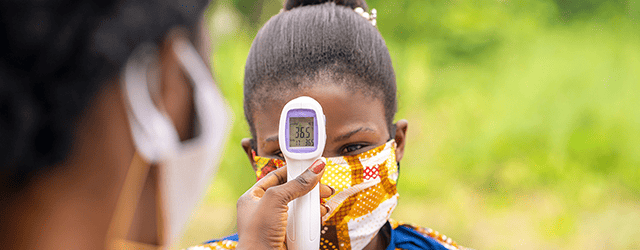Covid-19’s impact has not been as great in Africa as on other continents. But governments are still looking for ways to return to rapid growth.

Africa has demonstrated great resilience in the face of the Covid-19 pandemic. To date, the continent’s infection and mortality rates have remained low, on average, compared with the numbers being posted in Europe, the Americas and much of Asia.
African countries have imposed lockdowns and other restrictions of varying severity and duration, mainly to prevent their relatively fragile healthcare systems from being overwhelmed. This has entailed considerable economic cost. After several years of strong, sustained growth, sub-Saharan Africa will experience a more than a 3% decline in GDP this year, according to a June report from the IMF. Price shocks in global energy and other commodity markets have adversely impacted government revenues, particularly in oil-exporting countries, although the flow of remittances from Africans working overseas has held up well.
Many African governments that were already heavily indebted face severe fiscal tightening and a drying up of credit. A G20 initiative allows for suspension of interest payments on official loans, and multilateral lenders are stepping into the breach. The African Development Bank, the World Bank and the regional Trade and Development Bank are all working to guarantee private-sector participation in the concerted response to Covid-19, helping to ensure both vital infrastructure and the supply of healthcare and food essentials.
Governments’ role remains vital. In this section, we examine Morocco’s state-led recovery package, which aims to address job losses—including those in the informal sector—stemming from the collapse of the kingdom’s vital tourism industry as well as a shrinkage of foreign direct investment.
North African banks—especially Moroccan and Egyptian lenders—have been extending their footprint into sub-Saharan Africa in recent years. We look at how that is augmenting a growing stream of cross-border investment originating within the continent. We also examine how Gulf Arab investment in Egypt’s banking sector, as a gateway into the rest of Africa, is furthering intraregional trade through the provision of supply-chain finance, commodity-backed finance and new trade-finance products.
Access to credit has become much easier for many Africans thanks to the rapid expansion of digital lending and the rise of challenger banks. But for many low-income workers and households, the availability of other saving and insurance products—and, longer-term, more affordable lending from microfinance providers—continues to play a vital role.
The pandemic has already dealt severe blows across Africa, and the full implications are yet to be seen. Yet participants and close observers who spoke to Global Finance for this special section expressed hope that the stresses may help accelerate the movement toward financial market integration, greater interregional trade and investment and a better business environment for the private sector than was evident before the crisis struck.



